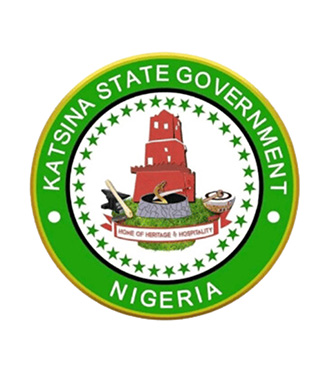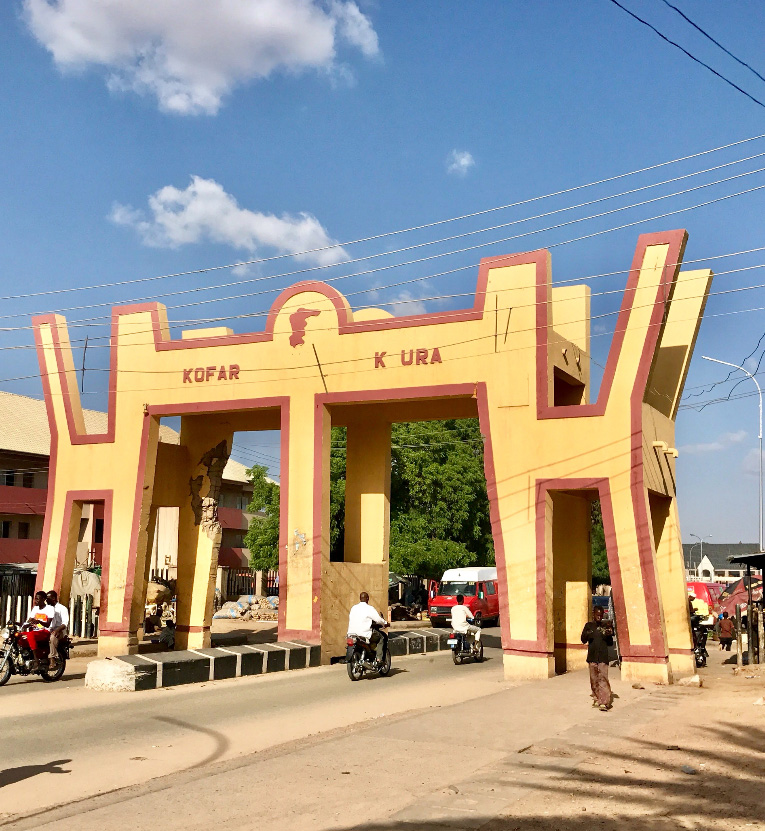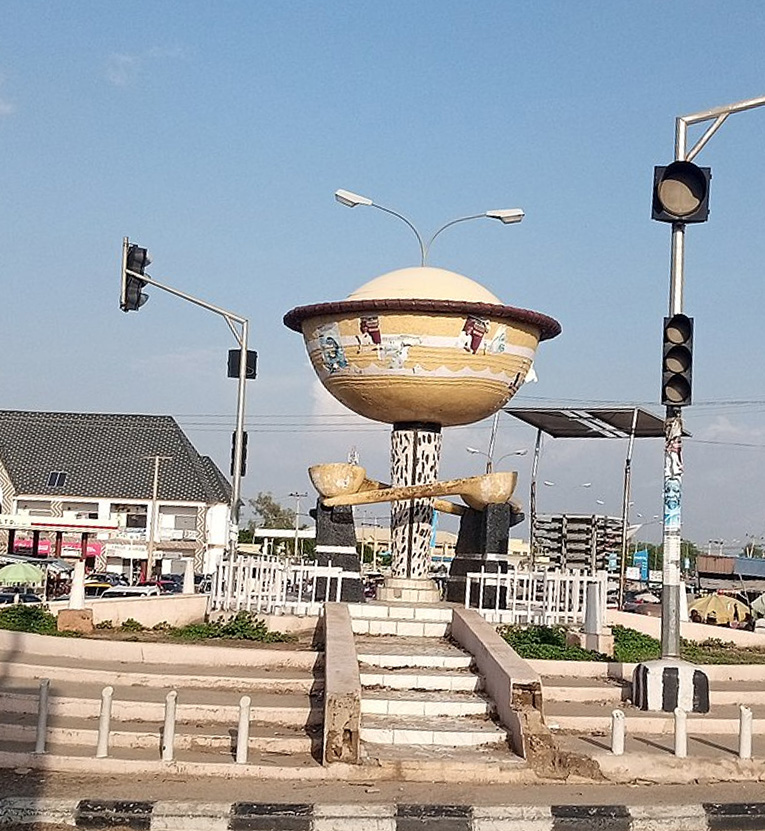Thank You!
Your submission has been sent.
Katsina

People
The people of Katsina State, located in northern Nigeria, are characterized by their rich cultural heritage, strong sense of community, and resilience in the face of challenges. Most ofthe population are of the Hausa-Fulani ethnic group, although there are also significant numbers of other ethnicities such as the Fulani, Kanuri, and Tiv. The citizens are characterized by their rich cultural heritage, strong sense of community, and resilience in the face of challenges. The state has a population of approximately 7.8 million people, with a significant percentage being youth under the age of 30.
The Hausa language is widely spoken and serves as a unifying factor among the diverse communities in Katsina State. However, English is also commonly used, especially in formal settings and education.
Traditionally, the people of Katsina are adherence to cultural norms and values. Extended family networks are important, and communal support is often relied upon during times of need. Social gatherings, such as weddings, naming ceremonies, and religious celebrations, provide opportunities for families and friends to come together, share meals, and strengthen social bonds.
Religion plays a significant role in the lives of the people of Katsina State, with Islam being the predominant faith. Mosques are central to community life, serving as places of worship, education, and social interaction. Islamic festivals and rituals are observed with great reverence and are integral to the cultural fabric of the state.
Culture
The culture of Katsina State, Nigeria, is rich and diverse, reflecting the traditions, customs, and values of its people. The Hausa language serving as the primary means of communication is widely spoken across the state, fostering unity, and facilitating social interactions among its diverse population. However, other languages such as Fulfulde, Kanuri, and Tiv are also spoken by smaller ethnic groups within the state.
Music and dance play a significant role in Katsina’s cultural expression, with various traditional instruments like the “kalangu” and “gurmi” accompanying rhythmic drumming and melodic chants. These musical performances are integral to social gatherings, weddings, and festivals, adding a sense of joy and celebration to the community. Katsina State is renowned for its colorful festivals, which celebrate its history, religion, and cultural heritage. The “Durbar” festival, characterized by colorful processions of horsemen, showcases the state’s rich Islamic traditions, and attracts spectators from far and wide. Other festivals like “Argungu Fishing Festival” and “Sharo” (a traditional Fulani festival) also highlight the cultural diversity and vibrancy of Katsina’s traditions.
Religion, particularly Islam, plays a central role in shaping Katsina’s culture, with mosques serving as important centers of worship, education, and community life. Islamic values and practices influence various aspects of daily life, from family dynamics to social interactions and governance.
Economy
The economy of Katsina State in Nigeria is predominantly agricultural, with farming serving as the primary source of income for most residents. The fertile soil and favorable climate support the cultivation of various crops like millet, sorghum, maize, rice, and groundnuts. Livestock farming, particularly cattle rearing, also plays a significant role, with Katsina being one of the leading producers in the country.
In addition to agriculture, trade and commerce are vital aspects of Katsina’s economy. The state’s strategic location along major trade routes facilitate the exchange of goods and services with neighboring states and country. Local markets, including the renowned Katsina Central Market, serve as bustling hubs where agricultural produce, livestock, textiles, and handicrafts are traded. Markets such as Katsina Central Market, Daura Market, and Funtua Market attract traders from neighboring states and countries, facilitating the exchange of goods and services. Trade in agricultural produce, livestock, textiles, handicrafts, and consumer goods is a significant driver of economic activity in the state.
Katsina State is home to various manufacturing and industrial enterprises, including textile mills, food processing plants, and beverage companies. The state’s manufacturing sector benefits from its abundant agricultural resources, with companies processing agricultural produce into value-added products such as flour, vegetable oil, animal feed, and beverages.
The state is endowed with mineral resources such as limestone, gypsum, kaolin, and clay, which present opportunities for mining and mineral processing activities. While the mining sector in the state is relatively underdeveloped, there is potential for growth and investment in mineral exploration and extraction, contributing to economic diversification and job creation.
Politics
Politics in Katsina State has been characterized by active participation and robust political dynamics. The state has played a significant role in the country’s political landscape, given its historical and cultural significance as the birthplace of Nigeria’s presidents, The state has produced two presidents, Muhammadu Buhari and Umaru Musa Yar’Adua both served as the Presidents of Nigeria. Over the years, Katsina has witnessed the emergence of various political parties vying for control of the state government, with the major parties being the People’s Democratic Party (PDP) and the All-Progressives Congress (APC).
Over the years, various governors leading the state’s affairs. Past governors include Saidu Barda, who served from 1999 to 2007 under the platform of the People’s Democratic Party (PDP), and Ibrahim Shema, who governed from 2007 to 2015, also under the PDP. From2015-2023, Aminu Bello Masari led the office of the governor under the APC. The current governor of Katsina state Dikko Umar Radda assumed office in 2023 under the APC.
pcl. State Performance Index
The pcl. State Performance Index provides a comprehensive assessment of Abia State's overall performance, combining primary survey data with data from credible sources. In summary, Abia State achieved a PSPI Score of -0.32, ranking 36th out of 37 states with a BBB rating, indicating Under Performance.
Summary of Analysis
Abia State’s assessment reveals a sub-optimal utilisation of its socioeconomic potential, compounded by the pessimistic perspectives voiced by its citizens in our survey. This combined evaluation results in Abia State receiving a BB rating, indicating “under-performance,” and securing the 36th overall ranking. Abia State requires significant improvement across all other indicators except for literacy rate and the capital expenditure to budget ratio. Additionally, effective management of citizens’ perceptions of performance is crucial. Abia State should prioritise strengthening public institutions, investing in infrastructure, and fostering human capital development.

Outlook for Katsina State: Positive
The outlook for Abia State remains positive, contingent upon several key factors:
1. Political Shift: The recent election victory of Mr Alex Otti from the Labour Party heralds a promising change in Abia State’s political landscape. The public’s optimism suggests a heightened focus on people-centric governance, potentially translating into improved overall administration.
2. Private Sector Expertise: Governor Alex Otti’s background in the private sector, notably as a seasoned banker, injects valuable expertise into the state’s leadership. While promising, potential conflicts with the public service require careful management to ensure effective collaboration and governance.
3. Innovative Local Governance: A groundbreaking shift in local governance sees accomplished individuals and former military leaders appointed as mayors, a departure from traditional political appointments. While not constitutionally mandated, this innovative approach aims to engage elites in government, fostering efficient local administration and promising prosperity.
4. Infrastructural Drive: The prioritisation of major road projects, including the Aba-Port Harcourt road constructed by Julius Berger, underscores the commitment to transformative infrastructure. Well-connected roads are vital for trade and hold the potential to drive holistic state development.
5. Resource Optimisation: Abia State possesses untapped resources, including gas reserves and a skilled workforce. Effective utilisation of these assets is a key driver for growth and could significantly impact the state’s economic outlook.
While the current positive outlook is a good starting point for Abia state, it is crucial to recognise and confront specific challenges that have the potential to hinder further progress. These challenges include:
1. Early Politicking for the Next Elections: Due to the Labour Party movement in the Southeast and the need for the ruling party at the centre to gain more grounds, politicians and leaders in Abia might become preoccupied with preparing for the next elections soon after taking office. This early focus on political campaigns and securing future positions can divert attention and resources away from governance and addressing the immediate needs of the state’s residents. It may result in less effective governance and slower progress on important issues.
2. Ongoing Agitation in the Southeast: The Southeast region of Nigeria has experienced agitation and unrest in recent years, with various groups and movements expressing their grievances and demands. If not well managed, these ongoing tensions and protests could disrupt peace and stability in Abia State. It might create an environment of uncertainty that hampers economic activities, investments, and overall development efforts. Therefore, effectively addressing and managing these regional tensions is essential for continued progress in the state
Recommendations for Sustainable Progress
To ensure sustainable progress and growth and move Abia State to a positive outlook, the following recommendations should be considered:
1. Enhanced citizen Engagement: Abia State should prioritise engaging with its citizens through regular town hall meetings, consultations with key stakeholders, and transparent communication. Involving citizens in policymaking is essential for effective governance.
2. Political Solution for Agitation: The state government should engage with the federal government to find a lasting political solution to the ongoing agitation in the Southeast, fostering peace and stability.
3. Infrastructure Revolution: Commence an infrastructure revolution in the state using creative means such as concessions, public-private partnerships (PPPs), and project finance. This will enhance the state’s physical and economic development.
4. Strengthen Public Institutions: Pay attention to the traditional institutions and public service to ensure effective service delivery for the benefit of the public. Strengthening institutions is crucial for governance and development.
5. Maximise Domestic Trade: Improve tax reforms, enhance market access and development, and invest in transportation infrastructure to maximise opportunities for domestic trade. This will stimulate economic growth and create employment opportunities.
6. Inter-State Collaboration for Progress: Collaborate with other state governments across Nigeria, drawing lessons from states like Akwa Ibom, Jigawa, Kwara, Gombe, and Kogi in various areas such as infrastructure development, job creation, financial inclusion, public institution strengthening, and the preservation of social and cultural values. Learning from the experiences of successful states can help Abia State bridge gaps and achieve its development goals.
By implementing these recommendations and focusing on the identified areas of improvement, Abia State can further solidify its position as a prosperous and stable state within Nigeria, contributing to its continuous growth and development.

Fact Sheet
Internally Generated Revenue
18.65 B
Y-o-Y
-5%
Per Capital Income
943,526.99
Y-o-Y
10
PMS Price
643.13
Y-o-Y
248%
Budget Size
160.52 B
Y-o-Y
9
Capital Expenditure
45.42 B
Y-o-Y
4%
Operating Expenditure
54.88B
Y-o-Y
1
Inflation Rate
29%
Y-o-Y
32%
Unemployment Rate
50.10%
Y-o-Y
5
Poverty Rate
10.7%
Y-o-Y
-65%
Infant Mortality Rate
115
Y-o-Y
37%
Literacy Rate
89
Y-o-Y
-7%
FAAC Allocation
82.95 B
Y-o-Y
35%
Data Source
National Bureau of Statistics:
▪ FAAC Allocation – 2022
▪ Inflation rate – 2022 – 2023
▪ PMS Price – 2022/23 Q4
▪ GDP – 2021 & 2022
▪ Mineral resources The World Bank
▪ Ease of doing business report
Kingmakers State of States Report
▪ Population
▪ Employment rate
▪ Mortality rate
▪ Literacy rate
Statista
▪ Unemployment Rate – 2020
NGF Digital Repository
▪ Capital and Operating Expenditure
▪ IGR
▪ Domestic and Foreign Debts
State Government Websites
▪ Budget Sizes – 2022 & 2023
Entering your name, email address and clicking “Submit” means you agree to receive updates about the work we do at pSPI. Phillips consulting will never spam you. Please, click here to learn more about how we protect your privacy.
Join us in shaping your state's future! Participate in PCL surveys to contribute to the State Performance Index report. Your input drives positive change.
Error: Contact form not found.